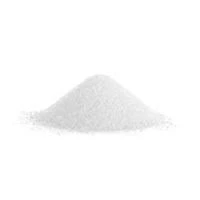
types of organic fertilizers
Types of Organic Fertilizers
Organic fertilizers have gained popularity over the past few years due to their sustainable approach to enhancing soil fertility and promoting healthy plant growth. They are derived from natural sources and are packed with beneficial nutrients that contribute to the overall health of the soil ecosystem. With a variety of organic fertilizers available, understanding their types and benefits is crucial for both home gardeners and commercial farmers. This article will delve into several common types of organic fertilizers, their composition, and how they can be effectively used.
1. Animal Manures
Animal manures, including cow, horse, chicken, and sheep manure, are among the most commonly used organic fertilizers. They provide a broad spectrum of nutrients, including nitrogen, phosphorus, and potassium, essential for plant growth. Moreover, manures enhance soil structure, improve water retention, and encourage beneficial microbial activity. However, fresh manure can contain high levels of ammonia and pathogens, so it is often recommended to compost it before application to ensure safety and effectiveness.
2. Compost
Compost is one of the best-known organic fertilizers, created through the decomposition of organic materials such as kitchen scraps, yard waste, and other biodegradable materials. It enriches the soil with a balanced mix of nutrients and improves soil texture and structure. Compost is rich in beneficial microorganisms and helps to enhance soil health. It can be applied to gardens, lawns, and flower beds to promote plant growth and improve crop yields.
3. Bone Meal
Bone meal is a finely ground powder made from animal bones, primarily composed of phosphorus and calcium. Phosphorus is crucial for root development and flowering, making bone meal an excellent choice for flowering plants and root vegetables. It is best applied during planting or early growing seasons, providing a slow-release source of nutrients that promotes healthy growth over time.
4. Fish Emulsion
Fish emulsion is a liquid organic fertilizer made from fish byproducts. It is rich in nitrogen and trace elements, making it particularly useful for promoting leafy green growth. Fish emulsion is often diluted with water before application and can be used as a foliar spray or soil drench. Its high nutrient content is beneficial for all stages of plant development, and it also contributes to soil microbial activity.
types of organic fertilizers

5. Seaweed Fertilizer
Seaweed fertilizers, derived from various types of seaweed, provide an array of micronutrients, hormones, and vitamins that help promote plant growth and health. They contain potassium, which aids in water retention and stress resistance, making them particularly valuable for crops during dry periods. Seaweed fertilizers are available in liquid form or as granules and can be applied through soil incorporation or foliar feeding.
6. Green Manures
Green manures, also known as cover crops, are fast-growing plants that are cultivated specifically to be plowed back into the soil. Leguminous plants, such as clover and vetch, are especially beneficial because they can fix atmospheric nitrogen, enriching the soil naturally. By decomposing, green manures add organic matter to the soil, improving its structure and fertility while also suppressing weeds.
7. Guano
Guano is a highly effective organic fertilizer derived from the accumulated excrement of seabirds and bats. It is extremely rich in nitrogen, phosphorus, and potassium, making it an excellent choice for promoting flowering and fruiting. Guano is available in both liquid and powder forms, and its potent nutrient content means it should be used sparingly to avoid nutrient burn.
8. Worm Castings
Worm castings are the nutrient-rich byproduct of composting worms, primarily red wigglers. They are packed with beneficial microorganisms, enzymes, and nutrients that enhance soil health. Worm castings improve moisture retention and soil structure, making them an excellent amendment for both indoor and outdoor gardens. Their slow-release nature allows for longer-lasting benefits compared to other fertilizers.
Conclusion
Organic fertilizers provide a sustainable and eco-friendly approach to nourishing plants and enhancing soil health. Each type comes with its unique benefits and application methods, making it essential to choose the right one for specific gardening or farming needs. By integrating these organic options into a fertility management plan, gardeners and farmers can promote sustainable practices that support healthy ecosystems and productive crops. Whether you are a novice gardener or an experienced farmer, incorporating organic fertilizers could yield remarkable advancements in plant growth and soil vitality.
-
PE and PP Plastics with Benzotriazole AdditivesNewsJun.12,2025
-
How Glacial Acetic Acid Balances pH to Combat Food SpoilageNewsJun.12,2025
-
Food Additives in China: Embracing the GreenNewsJun.12,2025
-
Cyanide Mining Gold Extraction and the Rise of Complementary ChemicalsNewsJun.12,2025
-
Ammonium Nitrate in Pharmaceutical ManufacturingNewsJun.12,2025
-
Aluminum Hydroxide in Glass and Ceramics ManufacturingNewsJun.12,2025
-
Mining Chemicals: Cyanide in Gold MiningNewsJun.04,2025
Hebei Tenger Chemical Technology Co., Ltd. focuses on the chemical industry and is committed to the export service of chemical raw materials.
-

view more DiethanolisopropanolamineIn the ever-growing field of chemical solutions, diethanolisopropanolamine (DEIPA) stands out as a versatile and important compound. Due to its unique chemical structure and properties, DEIPA is of interest to various industries including construction, personal care, and agriculture. -

view more TriisopropanolamineTriisopropanolamine (TIPA) alkanol amine substance, is a kind of alcohol amine compound with amino and alcohol hydroxyl, and because of its molecules contains both amino and hydroxyl. -

view more Tetramethyl Thiuram DisulfideTetramethyl thiuram disulfide, also known as TMTD, is a white to light-yellow powder with a distinct sulfur-like odor. It is soluble in organic solvents such as benzene, acetone, and ethyl acetate, making it highly versatile for use in different formulations. TMTD is known for its excellent vulcanization acceleration properties, which makes it a key ingredient in the production of rubber products. Additionally, it acts as an effective fungicide and bactericide, making it valuable in agricultural applications. Its high purity and stability ensure consistent performance, making it a preferred choice for manufacturers across various industries.











